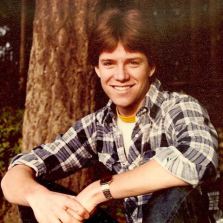
When I went to camp at 17, I was an angry, rebellious kid with a chip on his shoulder and a mean streak to go with it. I spent most of my energy trying to get attention or gain acceptance. I was living in the shadow of an older brother who was able to do something I apparently couldn’t do: earn my dad’s approval and admiration. I was intrigued by the opportunity to go to camp when an older friend showed me his camp pictures from the previous summer.
However, because my family couldn’t afford the fee, I thought there was no way I could go. But my youth leader wouldn’t give up so easily. He asked a caring woman from my hometown if she would pay to send me to camp, and she agreed. All I had to do was work in her garden pulling weeds with my youth leader.
The trip to camp was an adventure in itself, taking about 16 hours to get there. But it was the most beautiful natural setting I had ever seen. And just as the camp itself was remote and set apart from the rest of the world, the culture — the social environment — of camp was very different, too. I felt overwhelming love and acceptance at camp, and I felt freer to be myself, because all the baggage and expectations placed upon me by my peer group, my parents and even myself seemed irrelevant at camp. It was such a liberating atmosphere in which to learn about God’s love for me and consider my future.
A couple of nights before the end of camp, the speaker — who delivered a message about God every day — presented the most compelling story of love I had ever heard. He told of Jesus’s willingness to endure torture, being mocked, spat upon, stripped and then crucified— all because He loved me— because He was willing to die in my place to pay for my sins. And He did that for me, an obnoxious kid who felt unloved and unlovable at that point in his life. The speaker, Jim, asked us to consider our response to that love.
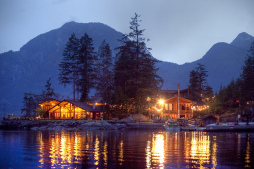 And so, I walked out of that meeting and found a solitary place next to a giant rock overlooking the inlet where the camp was situated. My mind was spinning at the thought that I was loved that much… that I was actually lovable, and that Jesus proved His love in the most amazing, remarkable way. I really only had one question to answer in those moments: Did I want to continue on the lonely, unfulfilling path I was currently on, or did I want to walk a new path with Jesus, who promised to continue loving me and walking with me through the rest of my life. I chose Jesus at camp, telling Him, “If my life is worth that much to You, You can have the rest of it.” I remember feeling like I was offering Him a dirty sweat sock in exchange for His amazing love, and I was a bit confused as to why He would even want it. But I was drawn by that love, and it was like cool water to a parched throat in the desert.
And so, I walked out of that meeting and found a solitary place next to a giant rock overlooking the inlet where the camp was situated. My mind was spinning at the thought that I was loved that much… that I was actually lovable, and that Jesus proved His love in the most amazing, remarkable way. I really only had one question to answer in those moments: Did I want to continue on the lonely, unfulfilling path I was currently on, or did I want to walk a new path with Jesus, who promised to continue loving me and walking with me through the rest of my life. I chose Jesus at camp, telling Him, “If my life is worth that much to You, You can have the rest of it.” I remember feeling like I was offering Him a dirty sweat sock in exchange for His amazing love, and I was a bit confused as to why He would even want it. But I was drawn by that love, and it was like cool water to a parched throat in the desert.
I know the camp environment and separation from my normal routine had a lot to do with my experience. In temporary community at camp, I had the time and space to contemplate what I really wanted from life, to consider my future as a long-term proposition, not just who I was expected to be now. It also created an environment where God could break through and demonstrate that I was accepted by him and didn’t need to prove anything. It was a fresh start — one my youth leader would build upon when we returned home.
Long before my experience in 1981, the power of camp was providing these monumental crossroads for kids, teenagers and adults to ponder life beyond their daily circumstances. And long after my experience, camp continues to deliver life-changing moments in which to make the most important of decisions. At camp, God rescued me from my small life and exchanged it for a grand adventure. That’s the power of camp.





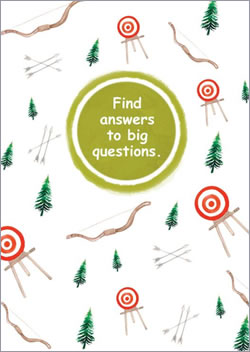
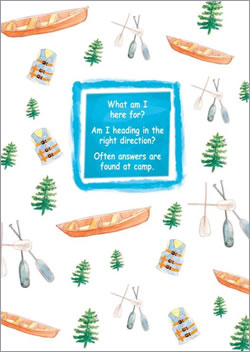

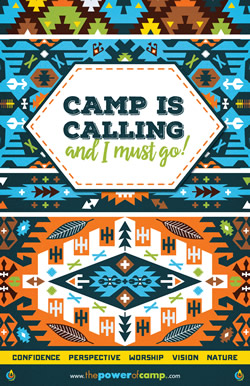
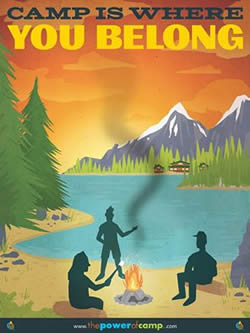
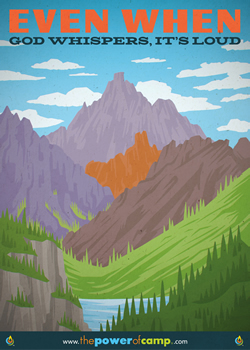
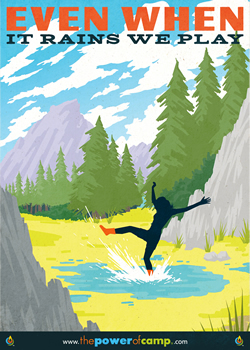
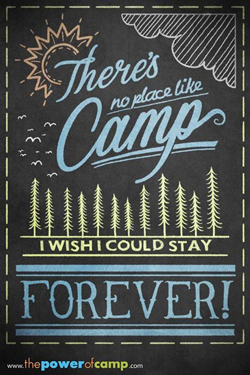
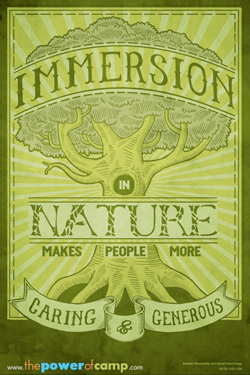
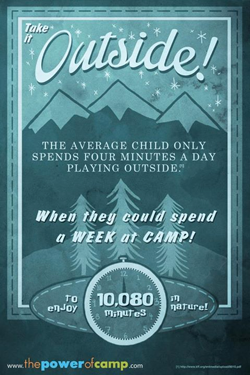
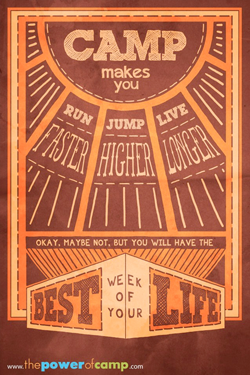
 INSTAGRAM
INSTAGRAM FACEBOOK
FACEBOOK TWITTER
TWITTER YOUTUBE
YOUTUBE